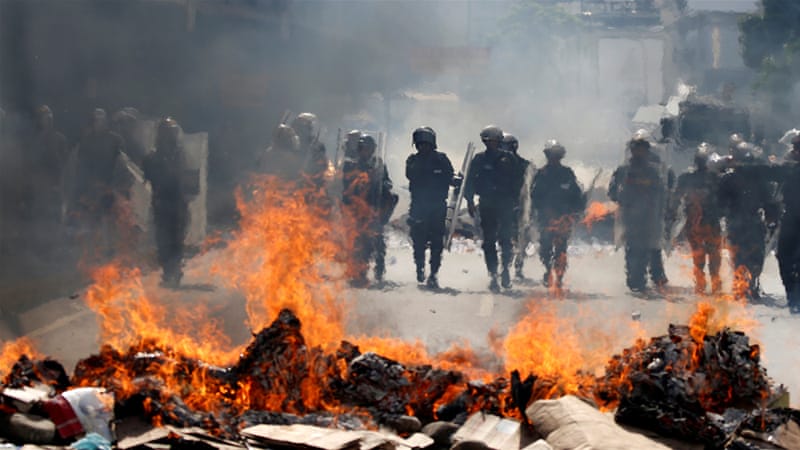The chemical attack in Syria is being called a crime on humanity by a Syracuse University International law expert, who says from a moral aspect Bashar al-Assad needs to be stopped. Thursday night, President Trump ordered a missile strike against Syria as a response to the chemical weapon attack. Syracuse University Law Professor David Crane says from a legal perspective international law does allow the United States’ reprisal.
“From a practical, political point of view, the U.S. needed to be seen as a player in this part of the world. It had not been a player for many, many years particularly when President Obama had essentially pulled us out of the situation by drawing that line in the sand and then doing nothing when gas was last used against the Syrian people.”
Professor Crane explains the severity of the current humanitarian crisis in Syria.
Crane is also the founder of an international organization that operates out of Syracuse University called the Syrian Accountability Project. He says they have been monitoring war crimes there since 2011. Over 55 law students have been involved in creating a trial packet for a future international prosecutor, an effort recognized by the United Nations. Crane says they’re drafting indictments for all 13 warring parties, including an indictment against Assad.
“We have an indictment against President Assad which we modify over time and adjust based on the crimes he’s been committing, and certainly the incident that took place this week will be one of the center points in his indictment.”
Crane says the United States action could break the ice and force Russia and Iran to take action. On the other hand, now that the U.S. has proven to be a player in the region; they might have Russia, Iran, or Assad looking over their shoulders.
”There’s going to be consequences now and even though the U.N. paradigm says that we only use force as a last resort, we try to settle our disputes peacefully; at the end of the day, sometimes the use of force is required to cause another nation state to stop killing their own citizens.”
Professor Crane goes into detail on the legality and morality of the United States’s response, as well as the international response to the missile strikes.
United States representative John Katko released a statement calling the U.S strike ‘a proportional response’ and urges the administration to articulate its strategy moving forward:
“The horrific and barbaric chemical attacks by the Assad regime against innocent civilians, including children, warranted strong and measured action. Targeted U.S. strikes on the air base from which these chemical attacks emanated were a proportional response to this horrible atrocity. Given the complexity of the conflict in Syria, I urge the Administration to articulate its strategy moving forward. As always, our Armed Forces acted bravely, professionally, and successfully, and I remain committed to ensuring they have the resources to be safe and successful.”
Senator Schumer released a similar statement regarding the U.S. response to the Assad regime:
“Making sure Assad knows that when he commits such despicable atrocities he will pay a price is the right thing to do.
It is incumbent on the Trump administration to come up with a strategy and consult with Congress before implementing it. I salute the professionalism and skill of our Armed Forces who took action today.”
Senator Gillibrand’s statement on the issue closely follows Senator Schumer’s, vilifying the crimes of the Assad regime while clearly signaling to the Trump Administration that she strongly disapproves of these actions happening without Congressional Authorization:
The chemical attacks by the Assad regime in Syria are unconscionable atrocities and a direct violation of international law; these attacks demand a firm response from the U.S. and the world community.
However, unilateral military action by the U.S. in a Middle East conflict causes grave concern, given the lack of any Authorization for Use of Military Force from Congress and the absence of any long-term plan or strategy to address any consequences from such unilateral action.
Furthermore, there is no ‘military only’ solution to the suffering in Syria. The American people need answers from the administration about their plan here and how they will bring coalition partners to the table for a long-term diplomatic solution .





